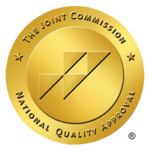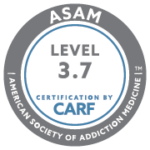Have you ever decided to give something up and failed miserably? Trying to get out of a no-good situation or a habit, when you finally said, never again. But soon enough you were right back at it? Maybe you were going to stop over-eating or quit smoking. But then a couple of days pass, and you break your self-promise.
It happens quite a lot actually.
To understand what’s happening, let’s look a little closer at the smoking example: a person smokes cigarettes while at the same time they know that smoking is harmful. Two things are happening here. First, this person smokes cigarettes. Second, based on the voluminous information available, this person believes cigarettes are harmful. This is an inconsistency between belief and action. Humans don’t actually like that kind of inconsistency, or dissonance. But our brains are able to make everything seem okay, depending on our immediate desires.
So What?
What happens next is why it is important for our understanding of how we think about chemical dependence (or addiction) and the choices we make. Let’s go ahead and change the example to a more severe situation. Let’s say a person regularly uses cocaine. They may know the dangers are broad and severe. The menu of cocaine’s side effects includes such deadly possibilities as heart attack, stroke, lung damage, kidney failure, impaired sexual functionality, and so much more. Not to mention the chance of immediate death in certain circumstances. And these are just the physical dangers. There is so much more at risk.
Assuming they are aware of the dangers, the person in this example is going to experience discomfort in within themselves. And in order to alleviate this discomfort, they will make use of one of these options.
Change their behavior: Stop snorting crank. This is the “Never again!” option.
Change their thoughts: Cocaine isn’t actually that bad for you.
Add thoughts: I use cocaine, and it is bad for me, but I am a good person. I don’t steal, and I care for my friends and family. So it all evens out.
Make little of it: I don’t care. It’s not a big deal.
Never Again Vs. Immediate Desire
A person with an addiction that knows of the dangers of the continual substance abuse has two conflicting options always available to them: quit or keep going. As rational as “quitting” may seem to us (and even the person with the addiction), the human brain is quite adept at rationalizing the other options when it has a strong desire.
In fact, a person’s reasoning constantly changes based on desire.
When we have a strong desire to get that fix, our thought process easily shifts to the pattern that makes using cocaine “not so bad” or “not as bad as people say.” Our brains correct the dissonance (inconsistency) by giving us a justification for getting high.
In contrast, after we have gotten the fix and are relatively sated, we start to feel guilty. We think, How could I have done that again? This time for sure, I am going to stop. The inconsistency is back, and in order to bring harmony to our thoughts and actions, we say “Never again!”
Now that we have satisfied our craving, the world seems very different. This is the reason a person with a chemical dependency can flip-flop. Our desires affect our justifications for our actions. This is also the reason we can say “never again” 100 times and mean it but still backslide to our harmful ways.
Irrational Approaches
The dissonance of an addict can be seen and felt. After a binge, friends and family might see their loved on go on a clean rampage. They stop everything, throw it all away. Quit right now. While that might sound like the right answer, one thing to remember is there is an actual chemical dependence. Addiction is a disease that has to be cleaned, managed, and uncovered at the root. Quitting requires help. Recovery that lasts is not a quick reaction to cognitive dissonance. Though that can be the starting point.
The inconsistency in your life and the discomfort it brings is healthy. However, to put that discomfort to its best use, a plan is necessary.
If you have said “never again” multiple times in your life, you are in a cognitive dissonance loop. The good news is that you are not alone. This is a deeply human reaction to how we interact with things that are bad for us but feel good in the moment. However, the danger still exists. You need more than a momentary reaction. You need help from others who have been able to find recovery.
Make Your “Never Again” Last
If you think you might have a problem with a chemical addiction, and that you might need help finding a way out of it, here is a short primer on the steps you can take if you are looking to say, “Never again,” but this time make it last: “I Need Help With My Addiction.”
Or if you simply want to give us a call today, we would love to talk to you and help you understand your options for a full and lasting recovery: 1-844-489-0836.








